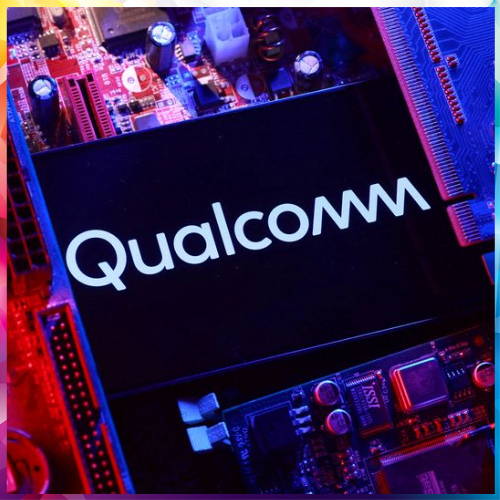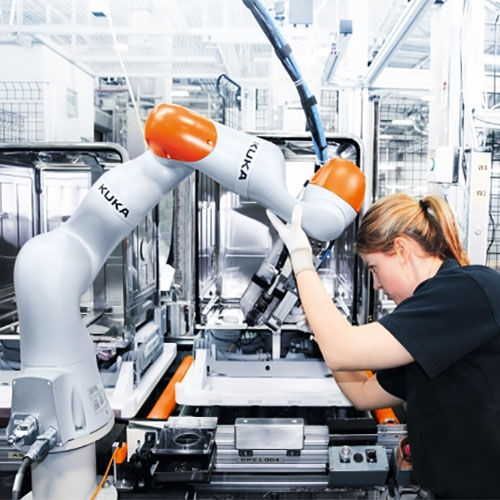Breaking News

Chipmaker Qualcomm has unveiled two new artificial intelligence processors designed for data centers, signaling an aggressive push beyond its smartphone roots as it looks to challenge Nvidia and AMD in the booming market for AI computing.
The company announced the launch of its AI200 and AI250 chips, which are optimized for large-scale AI workloads, including the inference and deployment of large language models and generative AI applications. The first chip will reach commercial availability in 2026, followed by the second-generation version in 2027, Qualcomm said on Monday.
Investors responded enthusiastically to the announcement, sending Qualcomm’s shares soaring 20%—a reflection of growing confidence that the company’s AI pivot could open new revenue streams as global demand for data center computing surges.
The chips, which will be the first from Qualcomm specifically designed for data centers, emphasize energy efficiency and cost-effective performance—areas where the company believes it can differentiate from Nvidia’s dominance in high-end GPUs. Both chips will support widely used AI development frameworks and integrate seamlessly with major enterprise tools, the company said.
Qualcomm also introduced rack-scale systems built around its new chips, echoing a broader industry trend in which chipmakers such as Nvidia and AMD are moving from component sales toward full data center platforms. The company said this approach would help customers deploy AI infrastructure faster and at lower operating costs.
The announcement was accompanied by a landmark partnership: Humain, an AI startup funded by Saudi Arabia’s sovereign wealth fund, will deploy 200 megawatts of Qualcomm’s new AI systems starting in 2026. Analysts said the deal represents an important validation of Qualcomm’s entry into the enterprise AI space.
The move marks Qualcomm’s most significant diversification effort to date. Long known as the world’s largest supplier of modem chips used in smartphones, the company has faced a cooling handset market and increasing competitive pressure. Sales to major clients such as Huawei have fallen sharply due to trade restrictions, while Apple continues to invest in its own custom chip designs, reducing its reliance on Qualcomm components.
To mitigate that dependence, Qualcomm has expanded into personal computers, developing chips for Windows-based laptops that compete directly with Intel and AMD. The company’s latest announcement extends that diversification into high-margin AI computing, a sector forecast to grow exponentially through the decade.
Despite optimism, analysts noted that breaking into the AI data center market will not be easy. Nvidia remains far ahead in performance and ecosystem maturity, with many enterprise customers heavily invested in its CUDA software platform. The cost and complexity of switching providers have proven major hurdles for competitors.
Still, Qualcomm’s focus on cost-efficiency, power optimization, and open frameworks could appeal to global enterprises looking for alternatives amid a constrained GPU supply market.
“This is Qualcomm’s boldest step yet to prove it can compete in the next frontier of computing,” said one analyst. “With cloud providers, governments, and startups all scrambling for AI hardware, even a small slice of the market could represent billions in new revenue.”
The company announced the launch of its AI200 and AI250 chips, which are optimized for large-scale AI workloads, including the inference and deployment of large language models and generative AI applications. The first chip will reach commercial availability in 2026, followed by the second-generation version in 2027, Qualcomm said on Monday.
Investors responded enthusiastically to the announcement, sending Qualcomm’s shares soaring 20%—a reflection of growing confidence that the company’s AI pivot could open new revenue streams as global demand for data center computing surges.
The chips, which will be the first from Qualcomm specifically designed for data centers, emphasize energy efficiency and cost-effective performance—areas where the company believes it can differentiate from Nvidia’s dominance in high-end GPUs. Both chips will support widely used AI development frameworks and integrate seamlessly with major enterprise tools, the company said.
Qualcomm also introduced rack-scale systems built around its new chips, echoing a broader industry trend in which chipmakers such as Nvidia and AMD are moving from component sales toward full data center platforms. The company said this approach would help customers deploy AI infrastructure faster and at lower operating costs.
The announcement was accompanied by a landmark partnership: Humain, an AI startup funded by Saudi Arabia’s sovereign wealth fund, will deploy 200 megawatts of Qualcomm’s new AI systems starting in 2026. Analysts said the deal represents an important validation of Qualcomm’s entry into the enterprise AI space.
The move marks Qualcomm’s most significant diversification effort to date. Long known as the world’s largest supplier of modem chips used in smartphones, the company has faced a cooling handset market and increasing competitive pressure. Sales to major clients such as Huawei have fallen sharply due to trade restrictions, while Apple continues to invest in its own custom chip designs, reducing its reliance on Qualcomm components.
To mitigate that dependence, Qualcomm has expanded into personal computers, developing chips for Windows-based laptops that compete directly with Intel and AMD. The company’s latest announcement extends that diversification into high-margin AI computing, a sector forecast to grow exponentially through the decade.
Despite optimism, analysts noted that breaking into the AI data center market will not be easy. Nvidia remains far ahead in performance and ecosystem maturity, with many enterprise customers heavily invested in its CUDA software platform. The cost and complexity of switching providers have proven major hurdles for competitors.
Still, Qualcomm’s focus on cost-efficiency, power optimization, and open frameworks could appeal to global enterprises looking for alternatives amid a constrained GPU supply market.
“This is Qualcomm’s boldest step yet to prove it can compete in the next frontier of computing,” said one analyst. “With cloud providers, governments, and startups all scrambling for AI hardware, even a small slice of the market could represent billions in new revenue.”
See What’s Next in Tech With the Fast Forward Newsletter
Tweets From @varindiamag
Nothing to see here - yet
When they Tweet, their Tweets will show up here.





























